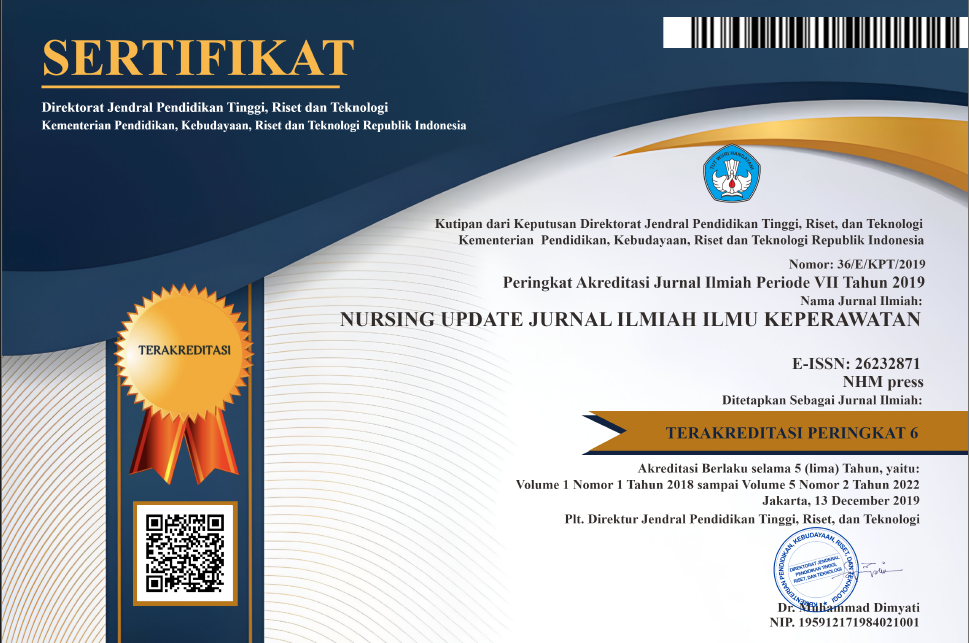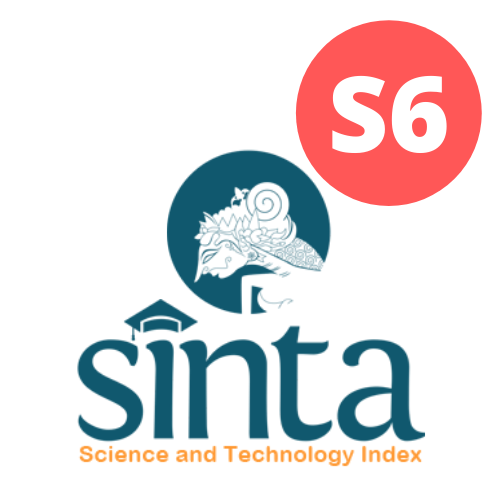HUBUNGAN SELF EFFICACY DAN TINGKAT PENGETAHUAN DENGAN KEPATUHAN MINUM OBAT ARV PADA PASIEN HIV AIDS
Abstract
Human immunodeficiency virus (HIV), is a retrovirus family, that attacks T lymphocytes (CD4) cells in the immune system. The purpose of administering antiretroviral (ARV) therapy to HIV/AIDS patients is to increase the cluster of deficiency 4 (CD4). Given that ARV treatment is lifelong, patients must maintain excellent compliance with ARV medication. Side effects can sometimes lead to reduced ARV medication compliance. The quantitative research determines the correlation between the cognitive level and compliance with ARV medicine in HIV/AIDS patients with a cross-sectional approach. The study inadvertently involved 32 respondents. The data collection techniques were questionnaires on cognition, self-effectiveness, and compliance. Based on the Spearman rank, the test results indicate a significant correlation between self-efficacy (p-value: 0.003; r = 0.509), cognitive level (p-value of 0.001; r = 0.542), and the consistency of ARV drug intake in HIV/AIDS patients at the SMC Hospital Telogorejo VCT clinic. The research concludes the correlation between self-efficacy, cognitive level, and compliance. Nurses should expand their role as consultants and must participate in health education on HIV/AIDS patient management.










